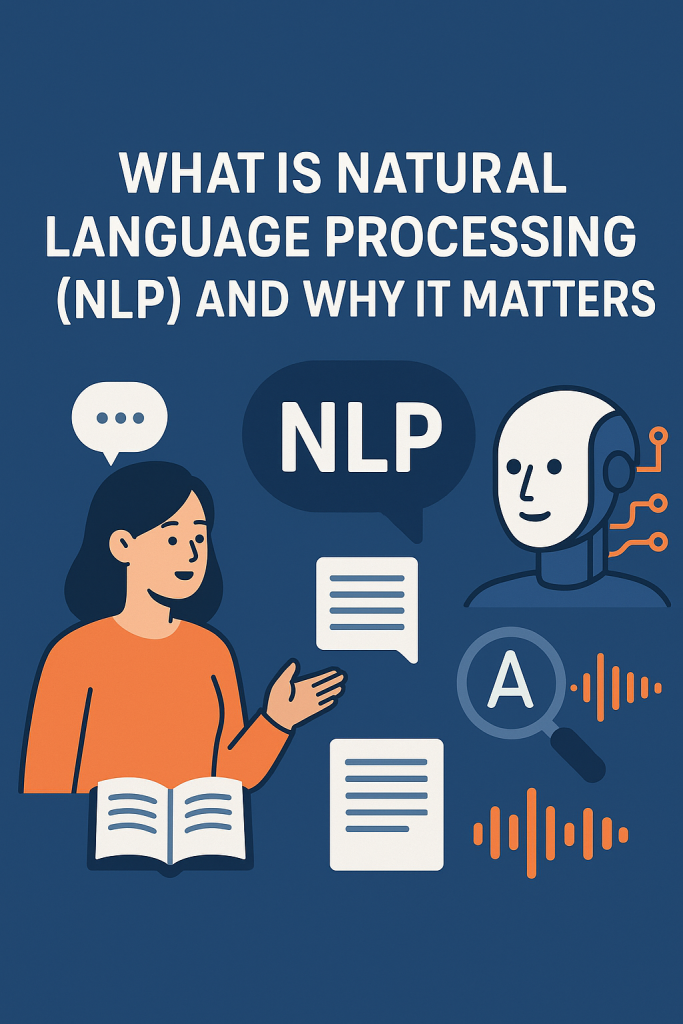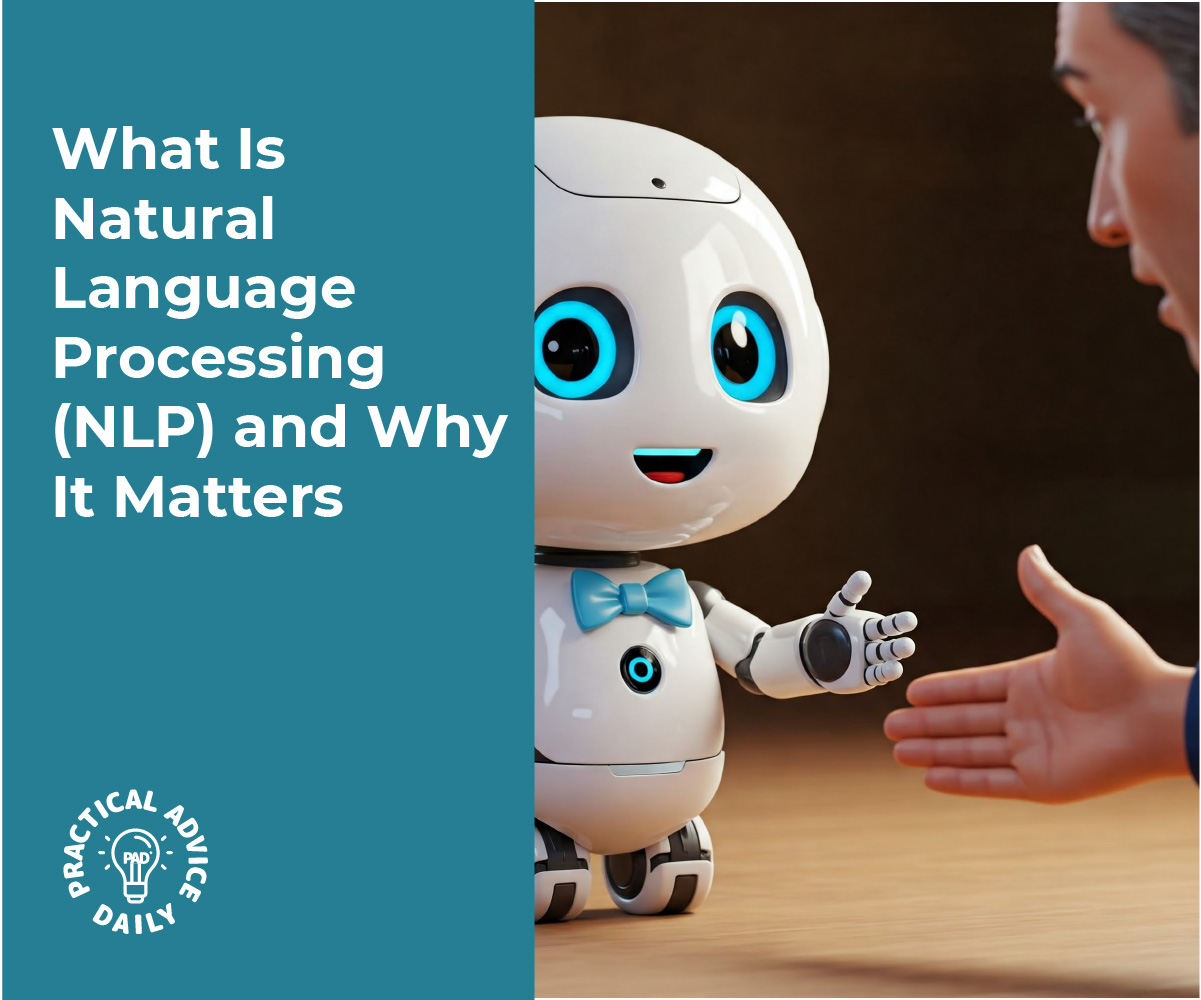Have you ever asked Siri a question or typed something into Google and been amazed at how well it understood you? That’s thanks to something called Natural Language Processing, or NLP.
Don’t worry—this guide is made especially for beginners. No tech skills needed. By the end, you’ll have a clear understanding of how computers are learning to “talk” with us in our own words—and why that’s a big deal in today’s world.
Table of Contents
Key Takeaways
🟢 NLP is how computers understand and respond to human language.
🟢 It powers tools like voice assistants, chatbots, and translation apps.
🟢 NLP helps make everyday tech more useful and easier to use.
🟢 You don’t need to be tech-savvy to benefit from it—it’s already part of daily life.
What Is Natural Language Processing (NLP)?
Natural Language Processing is a way for computers to understand and work with human language—like English, Spanish, or even slang. It’s a mix of computer science and linguistics (the study of language).
Think of it this way:
👉 You speak or type.
👉 The computer “listens,” figures out what you mean, and gives a helpful response.
Why Is NLP Important?
Before NLP, computers needed exact commands—almost like talking in code. Now, with NLP, they can understand real conversation. This makes using technology much more natural and less frustrating.

Everyday Examples of NLP
You’ve probably already used NLP without realizing it. Here are some common ways it shows up in your life:
1. Voice Assistants (Like Siri or Alexa)
You say, “What’s the weather today?”
The assistant understands your words and answers. That’s NLP at work.
2. Text Suggestions on Your Phone
When you start typing and your phone guesses the next word, it’s using NLP to predict what you want to say.
3. Spam Filters in Email
Ever wonder how Gmail knows which emails are junk? NLP helps scan messages for suspicious language.
4. Translation Apps (Like Google Translate)
When you translate a sentence into another language, NLP helps the app understand meaning—not just individual words.
5. Customer Service Chatbots
Many websites now use chatbots to help answer questions. They use NLP to read your message and reply in a helpful way.
How Does NLP Actually Work?
Let’s keep this simple. When you talk to a computer, NLP helps it do three things:
✅ Understand
It reads or hears your words and tries to figure out what you’re saying.
Example:
You type “What time is the pharmacy open?”
The system understands you’re asking for store hours.
✅ Think
It processes what you said and searches for the best answer.
Example:
It checks the pharmacy’s listed hours or matches your question to a known answer.
✅ Respond
It gives you a reply that (hopefully) makes sense.
Example:
“The pharmacy is open until 6:00 PM today.”
Why NLP Matters to You
Even if you don’t consider yourself “techy,” NLP is helping you in ways you might not see.
- It saves time by answering questions quickly.
- It removes frustration by letting you talk or type naturally.
- It makes technology more helpful—especially for people who don’t want to deal with complicated menus or buttons.
And as NLP keeps improving, your interactions with devices will feel even more like talking to a real person.
Final Thoughts
You don’t need to know how computers work to appreciate how far they’ve come. Thanks to Natural Language Processing, machines are getting better at understanding us—and making our lives just a bit easier.
So next time Siri answers a question or your phone suggests just the right word, give a little nod to NLP. It’s working behind the scenes to make technology feel a little more human.
Curious to learn more? Check out our guides on how voice assistants work or how to use translation tools on your phone.
